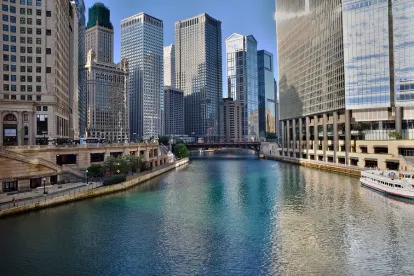Yesterday the Seventh Circuit issued a much awaited ruling in the Cothron v. White Castle litigation, punting to the Illinois Supreme Court on the pivotal question of when a claim under the Illinois Biometric Privacy Act (“BIPA”) accrues. No. 20-3202 (7th Cir.). Read on to learn more and what it may mean for other biometric and data privacy litigations.
First, a brief recap of the facts of the dispute. After Plaintiff started working at a White Castle in Illinois in 2004, White Castle began using an optional, consent-based finger-scan system for employees to sign documents and access their paystubs and computers. Plaintiff consented in 2007 to the collection of her biometric data and then 11 years later—in 2018—filed suit against White Castle for purported violation of BIPA.
Plaintiff alleged that White Castle did not obtain consent to collect or disclose her fingerprints at the first instance the collection occurred under BIPA because BIPA did not exist in 2007. Plaintiff asserted that she was “required” to scan her finger each time she accessed her work computer and weekly paystubs with White Castle and that her prior consent to the collection of biometric data did not satisfy BIPA’s requirements. According to Plaintiff, White Castle violated BIPA Sections 15(b) and 15(d) by collecting, then “systematically and automatically” disclosing her biometric information without adhering to BIPA’s requirements (she claimed she did not consent under BIPA to the collection of her information until 2018). She sought statutory damages for “each” violation on behalf of herself and a putative class.
White Castle before the district court had moved to dismiss the Complaint and for judgment on the pleadings—both of which motions were denied. The district court sided with Plaintiff, holding that “[o]n the facts set forth in the pleadings, White Castle violated Section 15(b) when it first scanned [Plaintiff’s] fingerprint and violated Section 15(d) when it first disclosed her biometric information to a third party.” The district court also held that under Section 20 of BIPA, Plaintiff could recover for “each violation.” The court rejected White Castle’s argument that this was an absurd interpretation of the statute not in keeping with legislative intent, commenting that “[i]f the Illinois legislature agrees that this reading of BIPA is absurd, it is of course free to modify the statue” but “it is not the role of a court—particularly a federal court—to rewrite a state statute to avoid a construction that may penalize violations severely.”
White Castle filed an appeal of the district court’s ruling with the Seventh Circuit. As presented by White Castle, the issue before the Seventh Circuit was “[w]hether, when conduct that allegedly violates BIPA is repeated, that conduct gives rise to a single claim under Sections 15(b) and 15(d) of BIPA, or multiple claims.”
In ruling yesterday this issue was appropriate for the Illinois Supreme Court, the Seventh Circuit held that “[w]hether a claim accrues only once or repeatedly is an important and recurring question of Illinois law implicating state accrual principles as applied to this novel state statute. It requires authoritative guidance that only the state’s highest court can provide.” Here, the accrual issue is dispositive for purposes of Plaintiffs’ BIPA claim. As the Seventh Circuit recognized, “[t]he timeliness of the suit depends on whether a claim under the Act accrued each time [Plaintiff] scanned her fingerprint to access a work computer or just the first time.”
Interestingly, the Seventh Circuit drew a comparison to data privacy litigations outside the context of BIPA, stating that the parties’ “disagreement, framed differently, is whether the Act should be treated like a junk-fax statute for which a claim accrues for each unsolicited fax, [], or instead like certain privacy and reputational torts that accrue only at the initial publication of defamatory material.”
Several BIPA litigations have been stayed pending a ruling from the Seventh Circuit in White Castle and these cases will remain on pause going into 2022 pending a ruling from the Illinois Supreme Court. While some had hoped for clarity on this area of BIPA jurisprudence by the end of the year, the Seventh Circuit’s ruling means that this litigation will remain a must-watch privacy case going forward. For more on this, stay tuned, CPW will be there to keep you in the loop.




 />i
/>i

